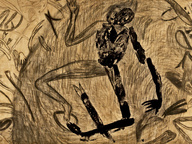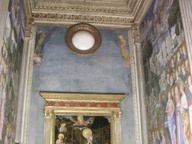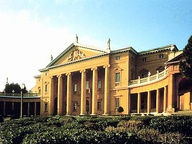Fabio Bucciarelli. Maiores Nostri
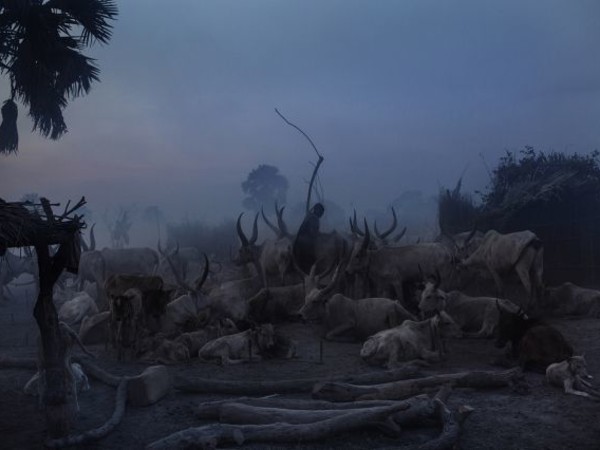
© Fabio Bucciarelli/AFP | Fabio Bucciarelli, Maiores Nostri, South Sudan
From 30 Ottobre 2014 to 30 Novembre 2014
Turin
Place: Raffaella De Chirico - Galleria Arte Contemporanea
Address: via Giolitti 52
Telefono per informazioni: +39 011 835357
E-Mail info: info@dechiricogalleriadarte.it
Official site: http://www.dechiricogalleriadarte.com
On January 2011, a referendum sanctions the independence of South Sudan asserting the birth of a new state and the separation from the Muslim north of the country. In spite of this and the great expectations of the younger state of the world, the conflict with the government in Khartoum because of the annexation of the oil fields doesn't finish. Since the end of 2013, the political confrontation between President Salva Kiir's Dinka ethnic group and his deputy, Riek Machar, Nuer, intensify and the hatred between the two ethnic groups increases until bring the Southern Sudan on the brink of civil war.
The personal exposure Maiores Nostri by Fabio Bucciarelli (Turin, 1980) is a selection of photos taken in the forgotten areas of the country, in the Cattle Camp of the Dinka ethnicity in early 2014.
Bucciarelli documents the African conflict that grips the country through his eyes authorial and with great empathy for the subject being photographed. "In the time spent in South Sudan, I realized how different African war from a Middle East. In Libya or Syria you could see the battle, savoring the smell of gunpowder, he cried the wounded and the dead. He photographed the bloodiest conflict in its early stages and inhuman. While the war in Africa is living in his everyday life ', in the faces of the people, abandoned to their fate, imprisoned without the possibility' to escape it 'to change the future ". (Fabio Bucciarelli for the everyday occurrence, March 2014).
For his solo exhibition at the gallery De Chirico, the Turin photographer focuses on a different dimension to the conflict, encouraging the everyday, out of time. A vision of the ancestral past of the man who becomes present in a context of daily life in Africa.
The personal exposure Maiores Nostri by Fabio Bucciarelli (Turin, 1980) is a selection of photos taken in the forgotten areas of the country, in the Cattle Camp of the Dinka ethnicity in early 2014.
Bucciarelli documents the African conflict that grips the country through his eyes authorial and with great empathy for the subject being photographed. "In the time spent in South Sudan, I realized how different African war from a Middle East. In Libya or Syria you could see the battle, savoring the smell of gunpowder, he cried the wounded and the dead. He photographed the bloodiest conflict in its early stages and inhuman. While the war in Africa is living in his everyday life ', in the faces of the people, abandoned to their fate, imprisoned without the possibility' to escape it 'to change the future ". (Fabio Bucciarelli for the everyday occurrence, March 2014).
For his solo exhibition at the gallery De Chirico, the Turin photographer focuses on a different dimension to the conflict, encouraging the everyday, out of time. A vision of the ancestral past of the man who becomes present in a context of daily life in Africa.
SCARICA IL COMUNICATO IN PDF
COMMENTI

-
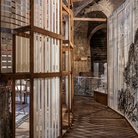 Dal 19 settembre 2024 al 12 gennaio 2025
Roma | Foro Romano e Palatino
Dal 19 settembre 2024 al 12 gennaio 2025
Roma | Foro Romano e Palatino
-
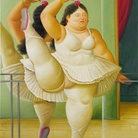 Dal 17 settembre 2024 al 10 gennaio 2025
Roma | Palazzo Bonaparte
Dal 17 settembre 2024 al 10 gennaio 2025
Roma | Palazzo Bonaparte
-
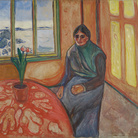 Dal 14 settembre 2024 al 29 gennaio 2025
Milano | Palazzo Reale
Dal 14 settembre 2024 al 29 gennaio 2025
Milano | Palazzo Reale
-
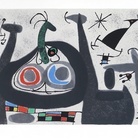 Dal 14 settembre 2024 al 23 febbraio 2025
Roma | Museo storico della Fanteria
Dal 14 settembre 2024 al 23 febbraio 2025
Roma | Museo storico della Fanteria
-
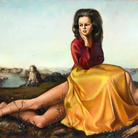 Dal 14 settembre 2024 al 15 dicembre 2024
Parma | Fondazione Magnani-Rocca
Dal 14 settembre 2024 al 15 dicembre 2024
Parma | Fondazione Magnani-Rocca
-
 Dal 12 settembre 2024 al 06 gennaio 2025
Bologna | Museo Civico Archeologico
Dal 12 settembre 2024 al 06 gennaio 2025
Bologna | Museo Civico Archeologico

